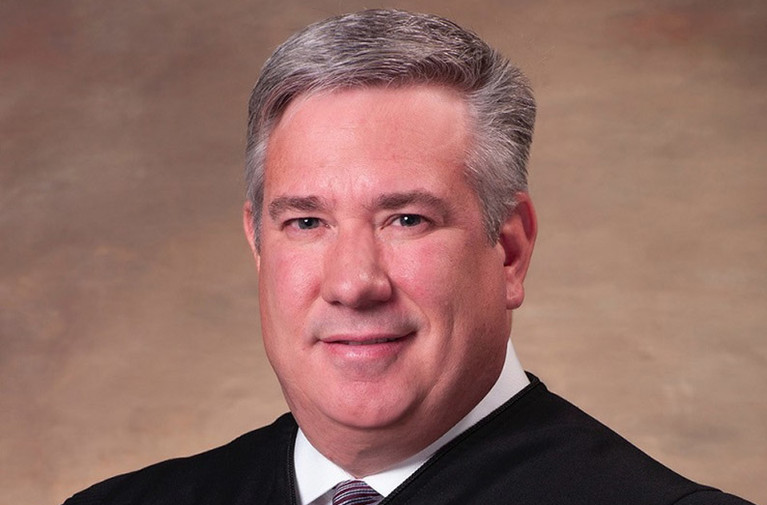Trial of Suspended Pennsylvania Attorney Accused of $33M Crypto Fraud Set to Begin Monday
On Monday, October 21, 2025, the federal trial of suspended Pennsylvania attorney Sean Hvizdzak is slated to commence in Pittsburgh, marking a pivotal moment in a long-running cryptocurrency investment scam case that has ensnared the legal community and highlighted risks in the nascent digital asset space. Hvizdzak, 38, faces multiple felony charges stemming from allegations that he and his brother, Shane Hvizdzak, defrauded investors out of approximately $33 million through a Ponzi-like scheme disguised as a high-yield crypto fund. The case, first indicted in 2021, underscores growing scrutiny on professionals leveraging their credentials to enter volatile markets like cryptocurrency.
Background on Sean Hvizdzak and the Brothers’ Operation
Sean Hvizdzak, formerly a practicing attorney in Saint Marys, Pennsylvania, was temporarily suspended from the bar amid the investigation. He allegedly used his legal expertise to lend legitimacy to the venture, handling paperwork and communications for the High Street Capital Fund USA LP, a limited partnership the brothers promoted as a secure cryptocurrency investment vehicle. Shane Hvizdzak, 37, of Bradford, Pennsylvania, served as the primary operator, soliciting funds nationwide via cold calls, emails, and seminars. The scheme targeted everyday investors, promising 10-15% monthly returns backed by “proprietary” crypto trading algorithms—a claim prosecutors say was fabricated.
The Alleged Fraud Scheme
According to the 2021 federal indictment, the brothers began operations in 2018, raising funds under false pretenses. Instead of investing in cryptocurrency as promised, they diverted proceeds—totaling over $33 million from more than 100 victims—to personal luxuries, including luxury vehicles, real estate, and unrelated business ventures. To sustain the illusion, they funneled money from new investors to earlier ones as “returns,” mimicking a classic Ponzi structure. False performance reports and fabricated trading statements were sent via wire, inducing continued investments and silencing complaints. When the fund collapsed in 2020, investors were left with massive losses, prompting SEC civil actions alongside the criminal probe.
The U.S. Attorney’s Office described the operation as a “brazen betrayal of trust,” with the brothers allegedly ignoring red flags like market volatility and using investor money for a 2020 property deed transfer that Sean claimed to have facilitated legally.
Charges Against Sean Hvizdzak
Hvizdzak faces a total of 31 counts in the 65-count indictment:
- 1 count of conspiracy to commit wire fraud (maximum 20 years).
- 26 counts of wire fraud (up to 20 years each).
- 4 counts of money laundering (up to 20 years each).
If convicted on all, he could face over 550 years in prison and fines exceeding $7 million, though sentencing would follow federal guidelines.
Recent Developments: Brother’s Guilty Plea and Evidence Rulings
In a major blow to the defense, Shane Hvizdzak pleaded guilty on October 16, 2025, in U.S. District Court in Pittsburgh to 49 counts of wire fraud and money laundering, admitting his role in the $31 million scam. Prosecutors are recommending 14 to 17.5 years imprisonment from Judge W. Scott Hardy, with sentencing slated for early 2026. Shane’s cooperation could provide key testimony against Sean, potentially simplifying the government’s case.
Adding to the pressure, on September 26, 2025, Judge Hardy largely denied Sean’s nine motions in limine to exclude potentially damaging evidence. Rulings allowed introduction of:
- Post-account-freeze communications and FBI search warrant details from 2020.
- Allegedly backdated deeds tied to fund misuse.
- Emails and texts, including one where Sean referred to certain recipients as the “Jew Crew”—a phrase prosecutors deem probative for tracing laundered funds, though the judge noted courts often redact racial epithets to avoid prejudice (citing a 2024 case, United States v. Strickland).
One motion was denied without prejudice for lack of specificity, giving the defense a chance to refile. The government confirmed it won’t reference Sean’s bar suspension or SEC civil stipulations. Defense attorney arguments centered on relevance and prejudice, but Hardy ruled the evidence bolsters the fraud narrative.
Trial Details
- Location and Judge: U.S. District Court for the Western District of Pennsylvania, Pittsburgh division; presided by Judge W. Scott Hardy.
- Schedule: Jury selection and opening statements expected Monday, October 21, 2025, with the trial projected to last 2-3 weeks.
- Prosecution: Led by Assistant U.S. Attorney Christian A. Trabold, backed by FBI and IRS investigations.
- Defense: Represented by private counsel; strategy likely to challenge intent and portray Sean as a peripheral figure overshadowed by his brother.
As of October 20, 2025, no further delays are reported, though the defense has signaled possible appeals on evidentiary grounds.
Broader Implications
This trial arrives amid a surge in crypto-related prosecutions, with the DOJ prioritizing fraud in digital assets. Legal experts warn it could deter attorneys from crypto ventures without robust compliance, as Tyler Harttraft of Bull Blockchain Law noted: “A verdict here could set the tone for other individuals from traditional industries, who see crypto as a great ‘get-rich-quick opportunity’ from a fund launch perspective.” For victims, a conviction might unlock restitution via asset forfeitures. The case also ties into ongoing SEC reforms, like the proposed CLARITY Act, aimed at clarifying crypto regulations.
Follow updates via the Western District of Pennsylvania U.S. Attorney’s Office or PACER docket (Case No. 1:21-cr-00030). If convicted, Hvizdzak’s outcome could influence bar disciplinary actions and investor protections in emerging tech sectors. For more on related crypto cases, let me know!
